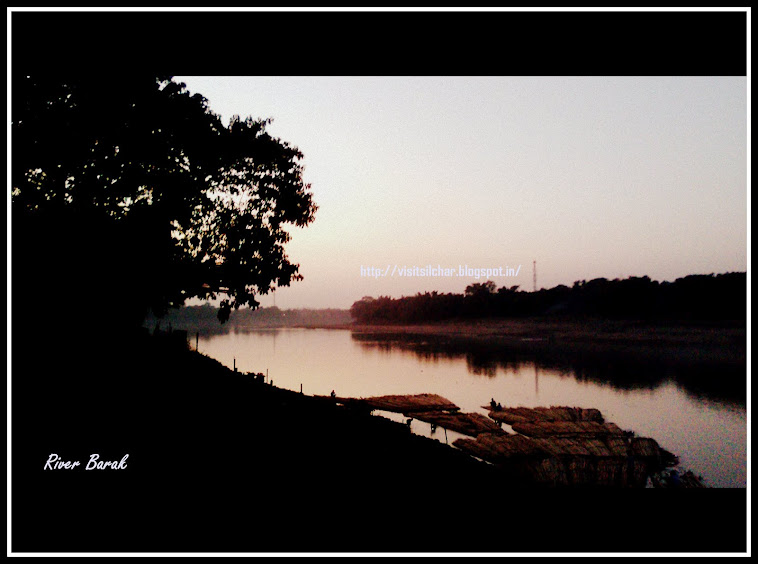History
Cachar was a part of the greater Kachari kingdom which also included the adjoining Hailakandi and Karimganj districts.
Freedom Movement :-
The later history of Cachar remains incomplete without the mention of Kamini Kumar Chanda, Arun Kumar Chanda and Abdul Matlib Mazumdar. Kamini Kumar Chanda died well before the eve of independence, but his son Arun Chanda and Abdul Matlib Mazumdar continued to fight for the cause. While Chanda was instrumental in garnering support of the Bengali Hindua, Mazumdar was one of the prominent Muslim leaders of eastern India to oppose the partition of India on communal lines. Mazumdar along with Fakhruddin Ali Ahmed (who later became the 5th President of India) became the most prominent Muslim opponents of the demand for a separate Muslim state of Pakistan, especially in the eastern part of the country. To counter the rising popularity of Muslim League, he successfully organised the Jamiat Ulema-e-Hind movement in Assam. Jamiat was an ally of the Congress having a mass following among the nationalist Muslims. In the very crucial 1946 General Elections just on the eve of India’s independence, he wrested the Muslim majority Hailakandi seat from the hold of Muslim League. That victory virtually sealed the hopes and aspirations of the Muslim League to include southern Assam including Cachar in Pakistan. It may be mentioned here that in that election, the bulk of the Muslim nominees of the Indian National Congress including Fakhruddin Ali Ahmed (5th President of India in later years) had lost to their Muslim League rivals miserably.
Assam's Surma Valley (now partly in Bangladesh) had Muslim-majority population. On the eve of partition, hectic activities intensified by the Muslim League as well Congress with the former having an edge. A referendum had been proposed for Sylhet District (now in Bangladesh). Mazumdar along with Basanta Kumar Das (then Home Minister of Assam) travelled throughout the valley organising the Congress and addressing meetings educating the masses about the outcome of partition on the basis of religion. On 20 February 1947, Moulvi Mazumdar inaugurated a convention – Assam Nationalist Muslim's Convention at Silchar. There after another big meeting was held at Silchar on 8 June 1947. Both the meetings, which were attended by a large section of Muslims paid dividend. He was also among the few who were instrumental in retaining the Barak Valley region of Assam, especially Karimganj with India.Mazumdar was the leader of the delegation that pleaded before the Radcliffe Commission that ensured that a part of Sylhet (now in Bangladesh) remains with India despite being Muslim-majority (present Karimganj district).. Arun Kumar Chanda did not join Bordoloi cabinet in 1946 but preferred to do social work as a legislator and also to uplift the premier educational institution, G.C. College. Unfortunately soon he died leaving a huge vacuum of an able Bengali Hindu leader with a secular bent of mind.
The entire eastern India was swept by violence just after India's partition and independence on 15 August 1947, scores of Hindus fled the newly created East Pakistan (now Bangladesh) for India, and Muslims fled Assam for East Pakistan. A large number of people lost their lives owing to violence, which resurfaced with more ferocity in 1950. Mazumdar, the only member from the undivided Cachar in the cabinet, along with his cabinet and party colleagues took up responsibility for the safety of both Hindus and Muslims in Cachar, touring affected areas and arranging camps and rehabilitation for the refugees, organizing supplies and security.
In 1960s, a prominent figure in Cachar politics came in the form of Moinul Haque Choudhury, who was a cabinet minister in Assam from 1957 to 1966. In 1971, he became the Industry minister of India under the Prime Ministership of late Indira Gandhi. Late Arun Kr. Chanda's wife Jyotsna Chanda also represented Silchar in the parliament.
1 July 1983 saw the separation of Karimganj district from Cachar. This was repeated in 1989 with Hailakandi district.
source:wikipedia


No comments:
Post a Comment